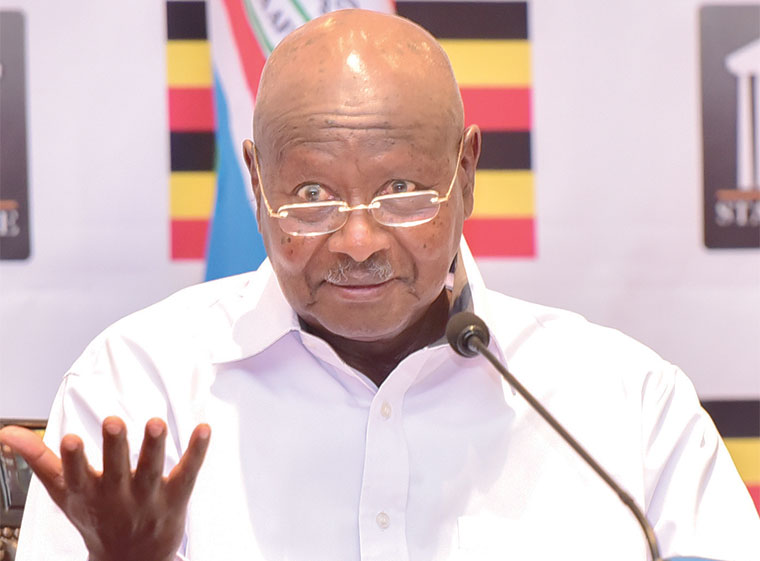President Museveni has issued a directive that mandates visitors to recreational areas and places of worship across the country to present their national identity cards before gaining access to these facilities.
This measure is aimed at preventing the harboring of suspected terrorists and thwarting potential attacks, particularly by the Allied Democratic Forces (ADF) rebels and other terrorist groups.
In his recent presidential address at Nakasero State Lodge, President Museveni emphasized the importance of strict identification procedures for individuals accessing public spaces.
He urged vigilance within communities, stating that unfamiliar individuals should be questioned, isolated, and reported to the police. Additionally, he advised bars and other social venues to scrutinize patrons and verify their national identity cards.
The President also emphasized the need for rigorous security checks in markets and on buses, acknowledging that these measures may be time-consuming due to the heightened security concerns.
This directive comes shortly after the arrest of seven individuals suspected of terrorist activities. The police recovered six explosive devices from these suspects, which they intended to use for attacks. The police have attributed these foiled attacks to the ADF.
The President’s instructions regarding worship centers may pose challenges, especially in urban areas where congregants often do not know one another. Many Pentecostal churches, for example, welcome all for prayers, regardless of their membership status.
President Museveni also directed the police to provide training to hotel and lodge managers on the proper documentation of visitors, emphasizing the importance of matching faces to the identity cards presented.
President Museveni provided an update on Operation Shujaa in the eastern Democratic Republic of Congo (DRC), claiming significant success in combating rebel groups. He reported the elimination of 567 rebels, the capture of 50, and the recovery of 157 firearms.
Additionally, 207 abducted individuals have been rescued. Uganda and the DRC have strengthened their military collaboration in pursuing the ADF rebels.
President Museveni highlighted that the DRC government had agreed to his proposal to train and deploy local defense forces in areas inaccessible to the Uganda Peoples Defence Forces (UPDF). Initially, President Felix Tshisekedi had hesitated to accept Ugandan involvement due to concerns about potential challenges to his government.
In a departure from previous practices, President Museveni ruled out granting amnesty to ADF rebels, particularly the hardcore members, should they surrender.
He emphasized that those responsible for heinous acts would be held accountable and possibly sentenced to prison. However, he noted that a pardon or lesser punishment might be considered at a later stage.
President Museveni reassured the public not to panic in the face of terror threats, stating that this represents the decline of the ADF rather than its growth or expansion. He called for calm and confidence in the security measures being implemented.


